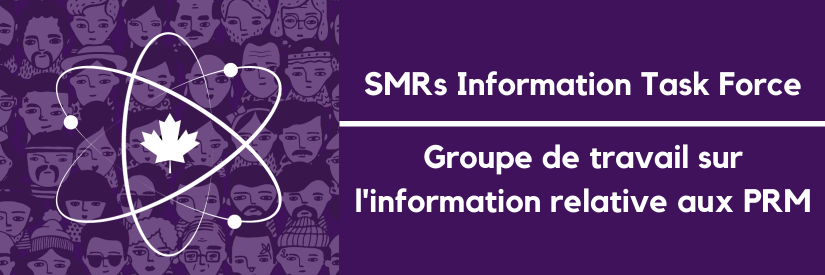African bank backs renewable energy
 Africa must look at renewable energy Standard Bank Wed, 2013/10/30 – Power is key to economic growth and competitiveness in Africa. The continent has massive potential to use renewable energy sources as it seeks to address an electricity shortage that has left more than half of the continent’s one billion people without access to power. Ntlai Mosiah, who heads up the Power, Infrastructure
Africa must look at renewable energy Standard Bank Wed, 2013/10/30 – Power is key to economic growth and competitiveness in Africa. The continent has massive potential to use renewable energy sources as it seeks to address an electricity shortage that has left more than half of the continent’s one billion people without access to power. Ntlai Mosiah, who heads up the Power, Infrastructure  & TMT (Technology, Media, Telecoms) team at Standard Bank Group, looks at the opportunities and costs of untapping this resource.
& TMT (Technology, Media, Telecoms) team at Standard Bank Group, looks at the opportunities and costs of untapping this resource.
Questions have been raised about whether renewable energy might be too expensive for Africa given the abundance of cheap coal, but it is now clear that this has changed as the cost of renewable technology is steadily falling while the capital expenditure costs of coal-fired power stations are rising
The 48 sub-Saharan countries have a combined installed power generation base of only 68 gigawatts (GW), roughly equal to the capacity of Spain whose population is less than 5% that of sub-Saharan Africa. Moreover, almost two thirds of sub-Saharan Africa’s total installed power generation base is situated in South Africa, the continent’s biggest economy.
Africa’s renewable energy potential is mostly untapped and it offers a great opportunity for the continent to address its power shortage with sustainable energy sources. While renewable energy cannot solve Africa’s power shortage on its own, we believe that distributed power from Renewables, such as solar PV, can make a great contribution towards solving the energy shortage that currently plagues parts of the continent.
Renewable energy’s suitability for Africa is underscored by the fact that it can now compete on cost with some conventional energy sources. The cost benefit of renewable energy is exemplified by the fact that users of diesel generation on the continent currently pay between 60 to 70 US cents per kilowatt hour (kWh) compared with an estimate cost of up to 10 to 15 US cents per kWh for wind generation and up to 15 to 25 US cents for Solar PV………
South Africa’s effort to reduce its reliance on coal-fired power generation is likely to see an increasing number of fund managers selectively investing in renewable energy projects in the rest of sub-Saharan Africa, whose 800 million people get by on just 25 000 MWs. Interest is being fuelled not only by the need of institutional investors to meet environment and sustainability targets in their mandates, but by internal rates of return (IRR) which can match or exceed other comparable investments made by private equity.
At Standard Bank Group, we believe Africa will follow the international trend to boost renewable energy’s contribution to national grids as sub-Saharan African nations step up efforts to alleviate their chronic power shortages. That will make for some very compelling investment opportunities for institutions that wish to capitalise on Africa’s scramble for reliable and sustainable power.
Standard Bank Group remains committed to funding renewable energy projects in South Africa and the rest of the continent to facilitate the transition from legacy power generating infrastructure that rely on fossil fuels, to systems that place more emphasis on sustainable energy solutions for future generations.
Renewables, including decentralised generation, can play a major role in rectifying Africa’s energy shortage.http://www.blog.standardbank.com/blog/2013/10/africa-must-look-renewable-energy
No comments yet.
-
Archives
- April 2024 (286)
- March 2024 (335)
- February 2024 (345)
- January 2024 (375)
- December 2023 (333)
- November 2023 (342)
- October 2023 (366)
- September 2023 (353)
- August 2023 (356)
- July 2023 (363)
- June 2023 (324)
- May 2023 (344)
-
Categories
- 1
- 1 NUCLEAR ISSUES
- business and costs
- climate change
- culture and arts
- ENERGY
- environment
- health
- history
- indigenous issues
- Legal
- marketing of nuclear
- media
- opposition to nuclear
- PERSONAL STORIES
- politics
- politics international
- Religion and ethics
- safety
- secrets,lies and civil liberties
- spinbuster
- technology
- Uranium
- wastes
- weapons and war
- Women
- 2 WORLD
- ACTION
- AFRICA
- Atrocities
- AUSTRALIA
- Christina's notes
- Christina's themes
- culture and arts
- Fuk 2022
- Fuk 2023
- Fukushima 2017
- Fukushima 2018
- fukushima 2019
- Fukushima 2020
- Fukushima 2021
- general
- global warming
- Humour (God we need it)
- Nuclear
- RARE EARTHS
- Reference
- resources – print
- Resources -audiovicual
- World
- World Nuclear
- YouTube
-
RSS
Entries RSS
Comments RSS






Leave a comment